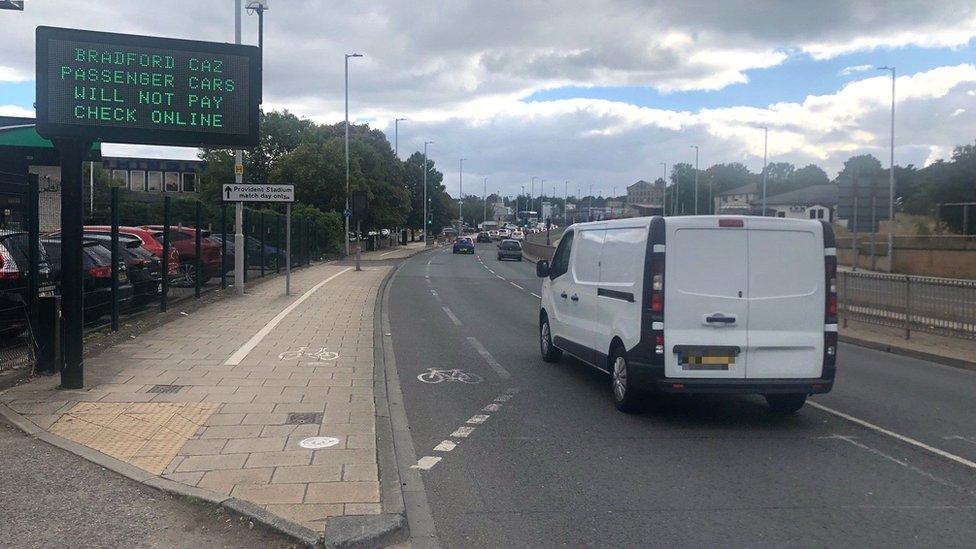Newcastle's Clean Air Zone generates more than £500,000
- Published
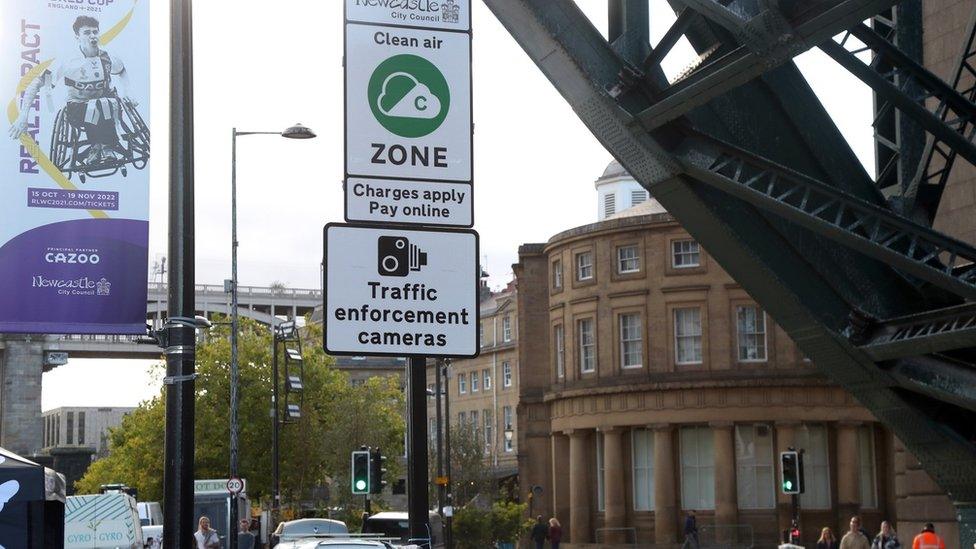
The CAZ was introduced in Newcastle on 30 January this year
More than £500,000 has been paid by drivers entering Newcastle's Clean Air Zone (CAZ) in the first six months.
Figures from the council show £311,290 was paid in CAZ charges and £214,996 was paid in penalty charge notices (PCNs) from 30 Jan to the end of July.
Under the scheme, older and more polluting taxis, vans, buses, coaches and heavy goods vehicles (HGVs) are charged to enter Newcastle city centre.
The council has awarded more than £1.3m in grants for cleaner vehicles.
Councillor Jane Byrne, who leads the council's work to promote cleaner air in the city, said she was "pleased to see" Clean Air Fund grants were helping drivers and business owners to upgrade their vehicles.
"Although we can't see pollution, we do know that it is there and that it can be harmful to people's health - so it's important that we all do what we can to help tackle it," Councillor Byrne said.
"Upgrading to cleaner vehicles is one of the ways we can make a difference and we are working through grant applications as quickly as we can to help more people to take this step."
The government has provided funding for Clean Air Fund grants of up to £4,500.
In the first six months since the launch of the Newcastle and Gateshead Clean Air Zone, a total of £1,301,437 was granted to eligible drivers who have chosen to upgrade their vehicles to cleaner models.
The authority said a total of 369 vehicles had been replaced, reducing subsequent emissions.
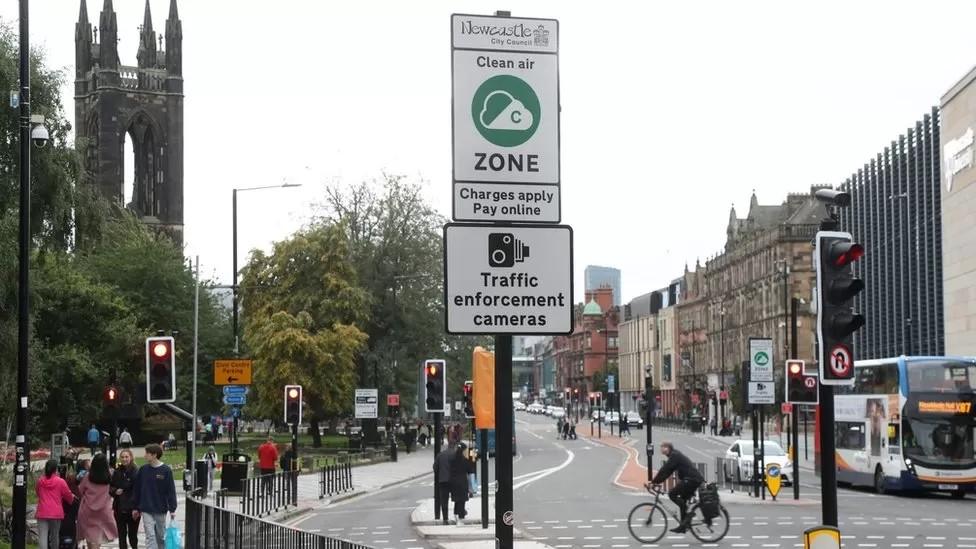
Newcastle City Council said surplus money raised will be reinvested in local transport schemes
Newcastle and Gateshead councils said it was "too early to assess the impact of the CAZ", adding they would continue to monitor pollution data along with Defra (Department for Environment, Food and Rural Affairs).
Under the scheme, non-compliant taxis and vans are required to pay a daily charge of £12.50 per day to enter the zone and non-compliant buses, coaches and HGVs are charged £50.
Charges do not apply to private cars, motorbikes - or any vehicles that have a Euro 6 diesel or Euro 4 petrol engine.
In the first six months since the CAZ launched, more than 10.6m vehicles entered the zone, of which 104,454 were non-compliant and were required to pay the fee within a six-day payment window - before or after the journey - or face a penalty charge of up to £120.
Money from CAZ payments is being used to support the operation of the scheme, and authorities have stated that any surplus money raised will be re-invested in local transport schemes.
Cllr John McElroy, cabinet member for the environment and transport at Gateshead Council, said it was "encouraging to see progress being made".
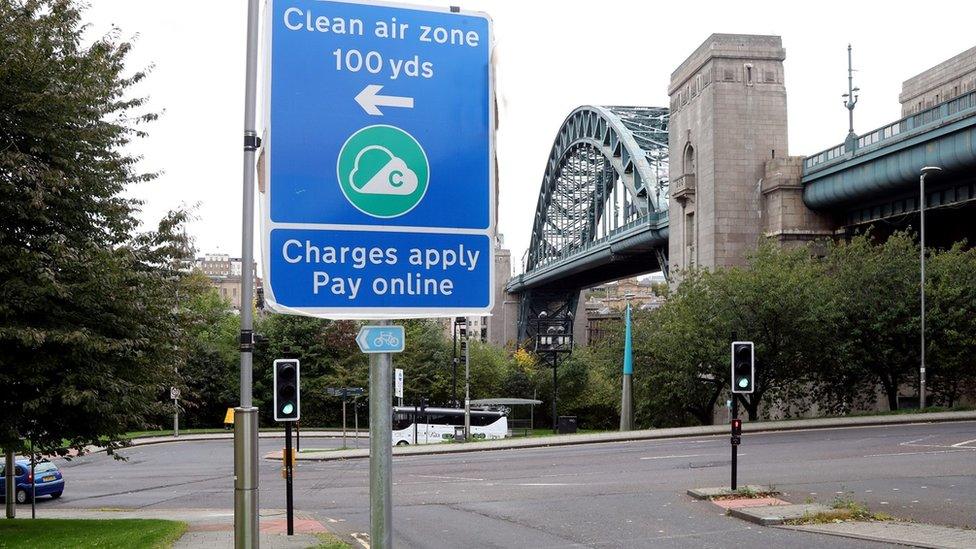
Income generated from CAZ charges will be primarily used to cover the scheme's running costs

Follow BBC North East & Cumbria on Facebook, external, X (formerly Twitter), , externaland Instagram, external. Send your story ideas to northeastandcumbria@bbc.co.uk, external.
- Published17 August 2023
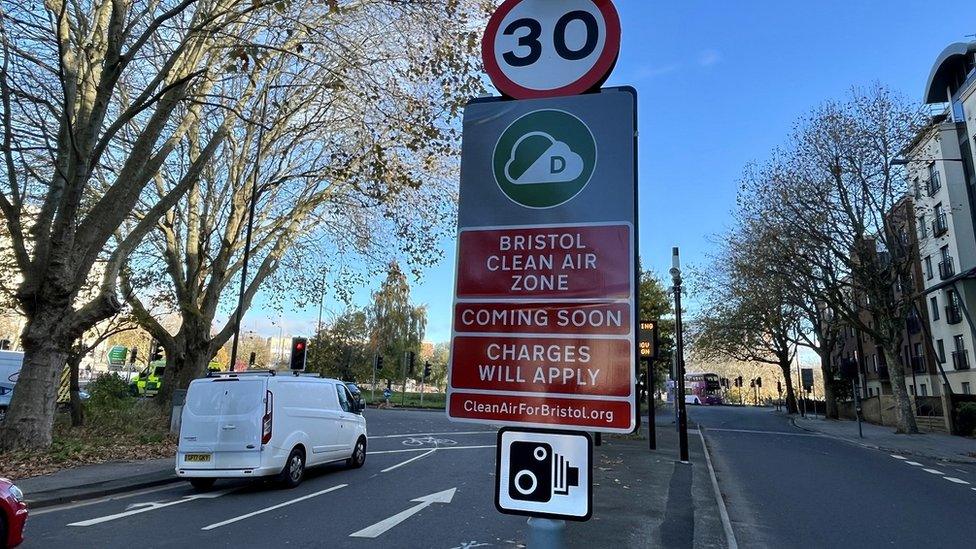
- Published7 March 2023
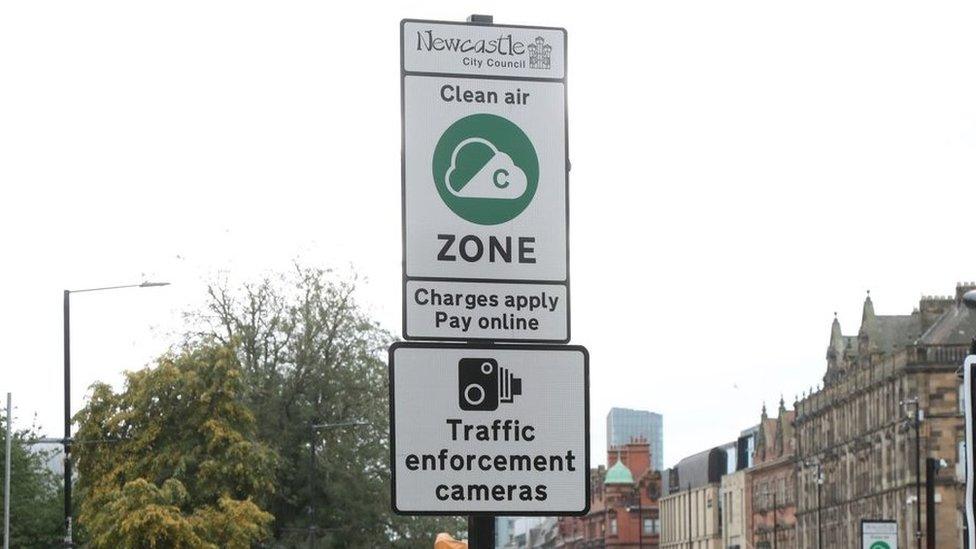
- Published30 January 2023

- Published23 December 2022
